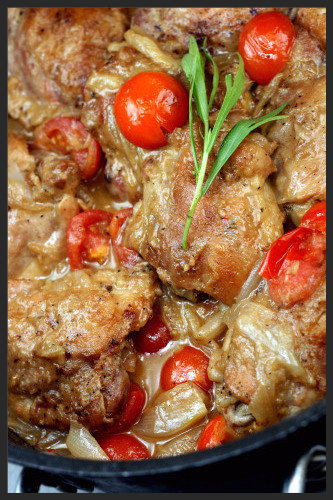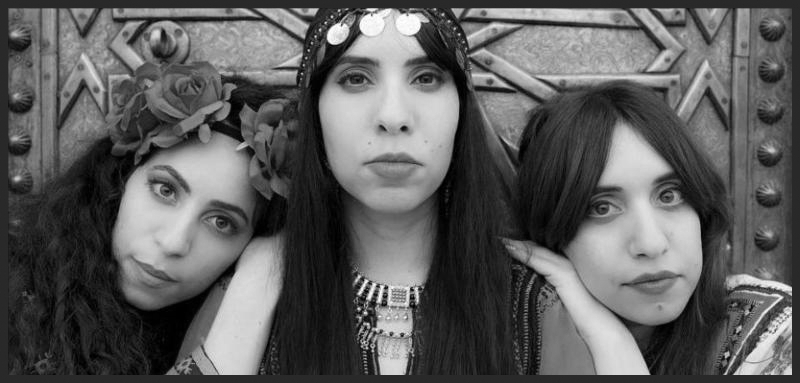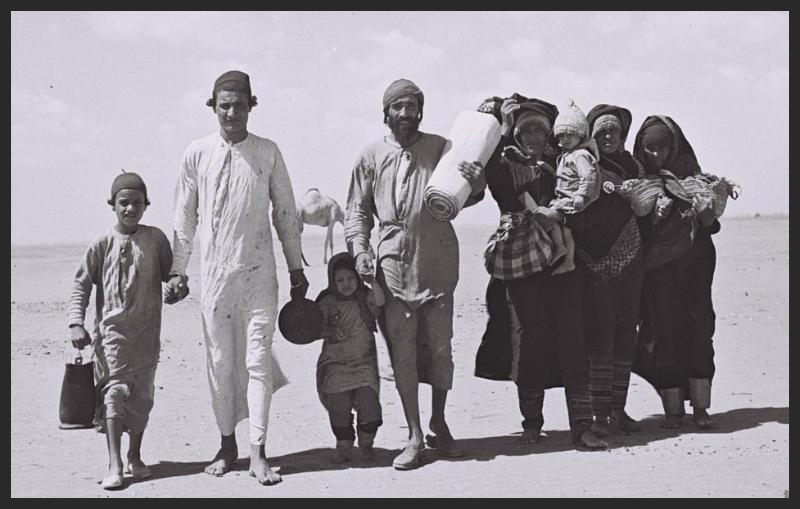| Mizrahi and Sephardic Films at the San Francisco Jewish Film Festival |
|
San Francisco Jewish Film Festival presents
Rock in the Red Zone
Tickets- $10
On the edge of the Negev Desert, Israel established the city of Sderot in the 1950s as a transit camp for immigrants from Arab countries, followed in the 1980s by Ethiopians. Working in factories, the immigrants lived far from the dreams of Jerusalem that had sparked their journeys.
|
|
San Francisco Jewish Film Festival presents
Carvalho's Journey
Tuesday, July 28 - 2:00pm @ Castro Theatre
Wednesday, July 29 - 4:00pm @ Cine Arts
Tuesday, August 4 - 2:40pm @ California
Tickets- Free
Few westward journeys were as exciting as that taken by American Sephardic-Jewish photographer and artist Solomon Nunes Carvalho in 1853-54, with pioneering explorer John C. Fremont's fifth expedition. Born in 1815 to Sephardic Jews, Carvalho grew up in Charleston, South Carolina's thriving Jewish community. Gifted in drawing and portraiture, he was also a maker of daguerreotypes, an early form of photography. The ambitious Fremont hired Carvalho to use daguerreotypes to document his westward trip in search of a viable route for a transcontinental railroad.
|
|
Sephardic Chickpea and Olive Salad
Ingredients
1 lb Chickpeas, dried
3-4 Tbls of extra virgin olive oil
2-3 Tbls of lemon juice, fresh
3 Garlic cloves, minced
1/4 Tsp of cayenne pepper
1 Tsp cumin powder
1/2 Cup of Kalamata olives
2-3 Medium tomatoes, firm
6-8 Green onions, chopped
1/4 Cup of parsley, chopped
1/4 Cup of raisins
1/4 Cup of feta cheese
Salt and pepper to taste
Directions
- Rinse the chickpeas, cover with several inches of cold water and let soak overnight (alternatively, use the quick-soak method), then drain.
- Place the chickpeas in a pot and cover with salted water. Bring to a boil, lower heat and simmer for 1 hour or until tender. Rinse in cold water, drain and set aside.
- In a small bowl, whisk together the olive oil, lemon juice, garlic and cayenne pepper with a fork.
- In a large bowl, gently toss together all ingredients with the dressing until well mixed. Season to taste with salt and pepper.
- Refrigerate until chilled and ready to serve.
|
|
Arroz de Sabato
Follow the directions below for Plain Rice Pilav, adding 1 bay leaf and 1/4 teaspoon saffron threads dissolved in 1/4 cup boiling water to the rice together with the stock. Cook as directed. The rice gets a beautiful yellow color and a heady aroma from the saffron and bay leaf. The bay leaf will be resting on top of the rice at the end of cooking. Remove and discard it before serving. Serve as a side dish with a meat, fish, or vegetarian entree.
Ingredients
2 cups long grain rice
3 tablespoons olive oil
1 scant teaspoon salt
4-5 cups chicken stock or vegetable stock
Directions
-
Preheat the oven to 350 degrees F.
-
If using white rice, you will need 4 cups of stock. If using brown rice you will need 5 cups of stock.
-
If using white rice, place the rice in a colander and rinse it in the sink in cold water until the water runs clear. Allow the rice to drain and dry for 20 minutes. If using brown rice, skip this step.
-
Over medium heat, heat the olive oil in a casserole with a tight fitting lid. Sauté the rice in the oil until it starts to brown.
-
Sprinkle the salt over the rice and pour in the stock. Cover tightly and place in the oven. Bake for 35-40 minutes (white rice) to 1 hour (brown rice). When the pilaf is done, all of the liquid will have been absorbed. A lovely aroma will fill the room when you open the lid of the pot. Serve immediately as a side dish with a meat, fish or vegetarian entree.
|
Braised Chicken with Tomatoes and Honey

This dish is a specialty of the Moroccan Jews. The sweetness of the honey and the cinnamon strengthens the heady aroma of the saffron, which colors the sauce bright orange rather than red like the tomatoes. A perfect summer meal!
Ingredients
4 tablespoons olive oil
8 skinless, boneless chicken breasts (4 chicken breasts halved, about 2 pounds)
1 large onion, peeled and finely chopped
1/2 cup chicken stock
10 large, meaty tomatoes, peeled and seeded or two 24-ounce cans good quality tomatoes
1/4 teaspoon saffron threads dissolved in 1/4 cup boiling chicken stock
1/3 cup thick honey (citrus honey is best)
2 sticks cinnamon
1 One-inch piece fresh ginger root, peeled
1/2 cup toasted slivered almonds
Directions
-
Heat 4 tablespoons oil over medium-high heat in a deep, wide sauté pan that has a tight-fitting lid. Brown the chicken breasts on both sides and set aside.
-
Sauté the onions in the same oil until soft and translucent (5-7 minutes). Reduce the heat and deglaze with 1/2 cup chicken stock, scraping up browned bits with a wooden spoon.
-
Add the tomatoes and cook until they begin to soften, stirring every once in a while. Add the saffron and honey. Stir well to dissolve. Add the cinnamon sticks and gingerroot.
-
Return the chicken breasts to the pot, making sure they are covered with sauce. Turn the heat down to simmer and cover the pan with foil. Then cover it with its lid. Cook 50 minutes. Test for doneness by inserting a skewer or toothpick into the meat. If juice runs yellow meat is done.
-
While the chicken is cooking, toast the almonds by cooking them in a dry cast-iron skillet over medium heat or on a cookie sheet in a pre-heated oven at 350 degrees until nicely browned.
-
Remove the cinnamon sticks and gingerroot before serving. The tomatoes will have dissolved into a nice sauce. Pass the sauce through a sieve to smooth it out before serving. If you used canned tomatoes, this has the added advantage of removing the seeds. Serve one chicken breast per person, covered with some of the sauce and sprinkled with toasted almonds.
|
|
| |
| JIMENA Testimonial from Natan Sharansky,
Chairman of the Executive of the Jewish Agency for Israel
|
|
JIMENA is proud to have received a thoughtful testimony from one of the world's top Jewish thought leaders and influencers. We are grateful to our ongoing partnership with the Jewish Agency for Israel and to Mr. Natan Sharansky for always championing the cause of justice for Jewish refugees from the Middle East and North Africa.
"The history of the 850,00 indigenous Jewish refugees from Arab countries must be wholeheartedly integrated into students' Jewish worldview and Israel advocacy as an effective counterbalance to absurd BDS claims of Israel as a "white, colonialist, apartheid" society.
I commend JIMENA's speakers for sharing their personal stories on over 100 campuses and I encourage campus organizations to collaborate with JIMENA and reach new audiences."
To read Mr. Sharansky's entire testimony please click here
|
French Social Media Initiative
|
|
JIMENA is proud to be launching its French Social Media initiative: JIMENA: Juifs Originaires du Moyen-Orient et d'Afrique du Nord. Historically and politically, France has had an important presence in North Africa and the Middle East. In fact, around 235,000 Jewish people from North Africa found refuge in France between 1948 and 1967.
JIMENA's mission has no boundaries and the French community now has the possibility to discover it. Please share with any Friends and Family who might be interested!
Merci!
Join group here
|
| JIMENA Oral History Project |
|
|
|
Mark Levy: Journey of a Sephardic and Mizrahi Family
|
Mark Levy was born in Alexandria, Egypt to a mixed family of Sephardic and Mizrahi Jews from Turkey, Northern Iraq and Israel. In his testimony he recalls meeting his Iraqi grandmother for the first time in an Israeli camp for Jewish refugees from Arab countries as well as his memories of Sephardic life and flight from Egypt.
|
|
|
|
Mally Mazal-Davidoff: Jewish Life in Pre-State Israel
|
Mally Mazal-Davidoff was born to a family of Yemenite and Sephardic Jews who lived in Jerusalem for more than five generations. Born in the East Jerusalem village of Kfar Hashiloach, present day "Silwan", during her testimony she recalled her memories of Arab - Jewish relations in pre-State Israel, the Hebron Massacre, and her experience serving in Yemen as an Israeli emissary for the Joint Jewish Distribution Committee.
|
JIMENA Responds to Campus
Anti-Semitism |
|
On June 4th, 2015 JIMENA issued a response to the alarming rise of anti-Semitic, BDS activity spreading on college campuses. As an organization that has a long history of working closely with students on campuses throughout the United States, we are committed to continue advancing nuanced and balanced campus discourse related to Middle Eastern human rights, Jewish diversity, and refugee issues. Please read our statement here.
BDS and anti-Israel activism on college campuses relies a false narrative which portrays Jews as white European colonialists. As North America's primary organization representing Jewish refugees from the Middle East & North Africa, JIMENA remains uniquely positioned to refute these myths by empowering students with the personal narratives of former Jewish refugees indigenous to Arab countries and Iran.
Please read our full statement here.
|
|
|
|
| Jewish wedding in Ghardaia, Algeria |
A fantastic writer and research associate at Hadassah Brandeis Institute tis seeking Jewish wedding stories from Morocco, Algeria, Tunisia, Syria, and Iraq. If you or your parents have a unique wedding story that you'd like to share please let us hear from you. [email protected]
|
| International News & Opinion |
|
Sick Beats and Sykes-Picot
By Gaar Adams 
"The music video for "Habib Galbi" (Love of My Heart), a sorrowful Yemeni folk song, opens with a simple shot across the desert. Inside a small hut, an exasperated woman pulls back the woven curtain of a Bedouin tent and croons in Arabic over a hollow, hypnotic drumbeat and ghostly minor key: "Love of my heart and eyes, it is a wonder who has turned you against me."
From the shisha-smoking old lady with kohl-lined eyes, to the Yemeni dance sequences and classically Arabic mournful undertones, "Habib Galbi" looks like it could be straight out of southern Arabia. And in some ways, it is: The song is sung in authentic Yemeni dialect and is composed from the lyrics of ancient Yemeni folk songs. When a Yemeni friend recently played "Habib Galbi" for his elderly grandmother in Sanaa, their accents were so good she thought that the all-girl singing trio might be from the Haraz, a rugged mountainous region just west of the capital."
Read More
|
|
Praying at a Jewish Tomb in the Shadow of ISIS
"Back when they still lived in Iraq, Kurdish Jews had a famous saying about the ancient synagogue believed to house the tomb of a biblical prophet in this beleaguered town on the high northern plateau of Nineveh province.
On Shavuot they said, 'He who has not made the pilgrimage to Nahum's tomb has not yet known real pleasure.' This past Shavuot I was part of a small group that may have been the first in more than 60 years to celebrate this holiday at the synagogue."
Read More
|
The Six Day War: A Jewish Story 
BBC World Service
June 19, 2015
"In June 1967, the Six Day War between Israel and its Arab neighbours led to mobs attacking Jewish property and houses in several Arab capitals, and many Jews fleeing what had been their homes for generations. In the second of two programmes about the effects of the Six Day War, Witness talks to Liliana Seror, whose family were forced into hiding by anti-Jewish riots in Tripoli and who joined an exodus of Libyan Jews, bringing to an end a community that had been in Libya for more than 2,000 years"
Listen Now
|
|
Why Jewish Refugees are the Correct Response to BDS
"The BDS campaign, initiated in 2005 by Palestinian "civil society" to force Israel to comply with "international law", seems to have gathered steam in recent times.
Using the language of human rights, Barghouti goes beyond urging Israel to end its occupation of the Palestinian West Bank. He is advocating, in no uncertain terms, the destruction of Israel, by overwhelming it demographically with millions of returning Palestinian Arab refugees."
Read More
|
Reclaiming Jewish Identity: An Aboriginal People of the Middle East
Huffington Post
July 7, 2015
"Starting this September, after decades of lobbying efforts by Arab-American organizations, the United States Census Bureau will begin testing a new category for Americans of Middle Eastern and North African origin. In conjunction with this new listing, no less than 19 subcategories will be made available, including 'Israel.' So where does this leave Jewish Americans? Should diaspora Jews follow the example of their Israeli co-ethnics and mark "Middle Eastern/North African," or should they take the easy way out and mark "Other" or even "White," as most Middle Eastern and North African Americans have done up to this point? Should there be a separate "Jewish" category?"
Read More
|
|
The Ghosts of Old Baghdad
Jerusalem Report
"I am no expert on the Jews of Iraq. But a friend's Iraqi father back in Jerusalem upon hearing that I was heading for Baghdad had mentioned the Taht el Takia neighborhood in the heart of the market where he had grown up and asked me to take some pictures of I had the chance.
Old Baghdad isn't really safe anymore. We won't be able to walk around," Yusuf told me as we debated the issue. "After the Jews were kicked out in the '50s, a load of poor Shi'a moved in and they have been running it ever since."
|
|
|
Comprehensive Calendar
Please note that in addition to the events listed in our public calendars JIMENA has a number of private events at college campuses, day schools, and private homes. If you are interested in getting more involved in JIMENA by hosting a program in your community, we urge you to contact us at [email protected]
|
|
JIMENA
i
s a nonprofit 501(c)(3) organization that strives to achieve universal recognition of the Mizrahi refugee experience and vibrant cultural heritage.
Through a 40-member Speakers Bureau, Oral History and Digital Experience Program, and On-Campus Advocacy and Engagement Initiatives, JIMENA is preserving and sharing the heritage and history of Mizrahi and Sephardic Jews.   
|
|
|